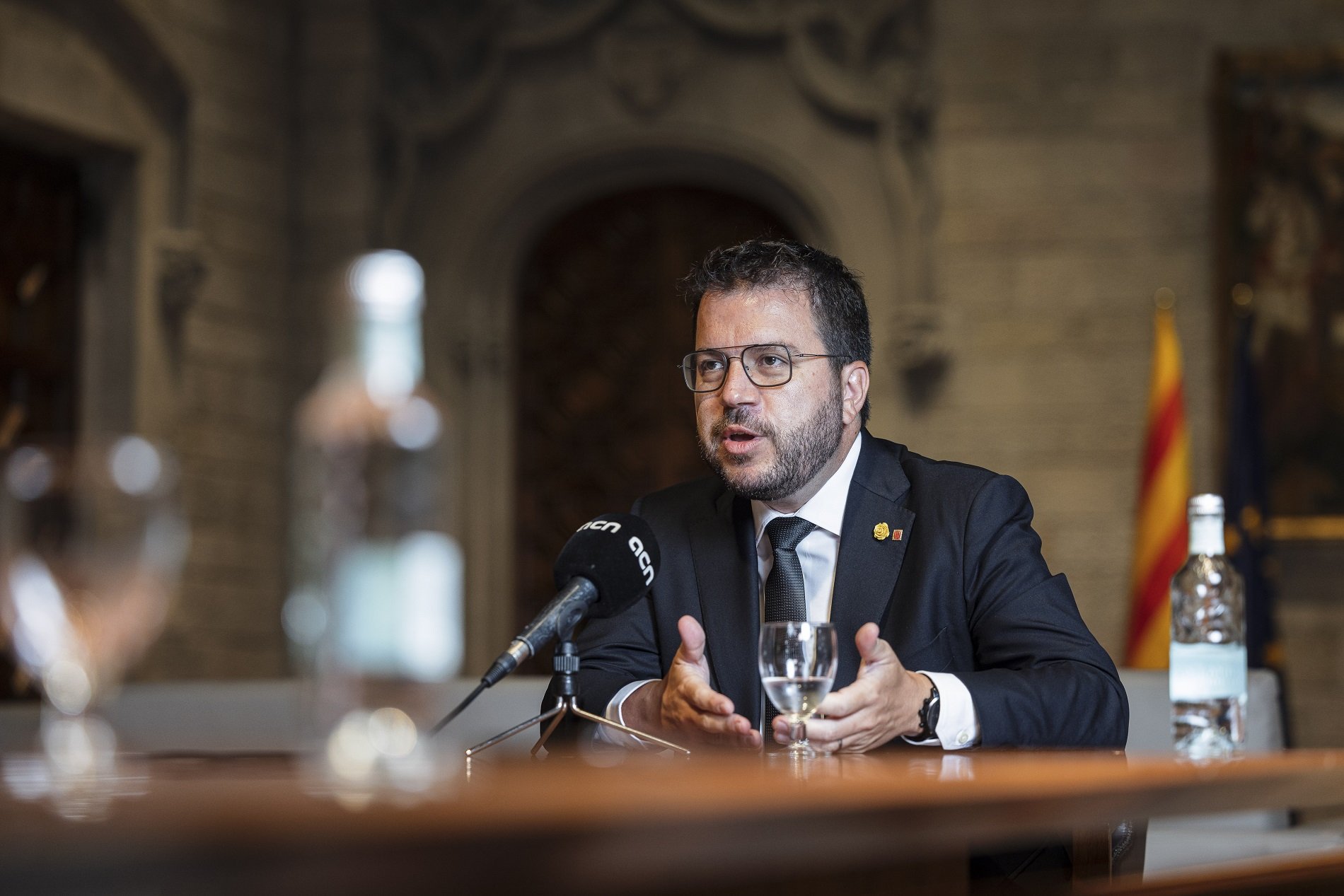The president of Catalonia, Pere Aragonès, intends to formulate a "much broader" proposal for Catalan self-determination, looking beyond the independence movement, during the general debate in the Catalan Parliament which is scheduled for the last week of September. Aragonès considers that "it is time for an inclusive proposal to resolve the political conflict and to allow the citizens of Catalonia to be treated as adults", he affirmed in an interview with the ACN news agency. An initiative that will be "broad and inclusive", at the same time that his government is "opening the anti-repressive file" with the Spanish state, according to the president. "I am very persistent, and I will continue with a broad path that includes those people who believe that political conflicts are resolved by deliberation, listening and making decisions at the polls," he reiterated.
As well, in this debate which will open the new political term, the head of the executive will present "tangible" proposals in the face of an economic context that he considers critical due to the "pain that more and more families are enduring to make ends meet", with inflation rampant and growing in the midst of the energy crisis. These initiatives will have to be detailed in the government budget for 2023, with which the executive aspires to promote the transformations that it set out at the beginning of the legislature: green, social, feminist and democratic commitment.
Budget: support from whom?
In fact, Aragonès also referred to the budget, for which he said that his minority government will look to the left-wing, pro-independence CUP and the alternative left En Comú Podemos as preferred partners in the negotiation, offering "more coherent alliances". Although last year efforts were made to pass the annual accounts with the CUP, given the pro-independence majority of the Parliament of Catalonia, in the end it was Jèssica Albiach of the Comuns who gave the necessary votes for the budget to be passed. For this very reason, the CUP has already been critical of the government, asserting that its real partners are not themselves, but the Comuns and also the Catalan Socialists of the PSC.
However, Aragonès states that he is not proposing to go to the PSC on the budget because they have "different projects for the country [of Catalonia]" and his objective is to reach an agreement "with whoever is more coherent in their project and the commitments of the citizenry". For this reason, he rules out the PSC, since "there are other models of society and country that are not ours, and it would be very difficult to reach an agreement", he argued. In any case, "it wouldn't make any sense" to look to Salvador Illa's PSC if the government has "alternatives" that would allow a budget that is "more coherent and in accordance with the commitments made for the legislature and at the investiture".
PSC, agreement impossible
Thus, Aragonès has already rejected the proposal of Salvador Illa, who on Monday tended his hand to the Catalan executive to negotiate the budgets for 2023. Illa believes that "it would be good" if the accounts for next year had support that was "as wide as possible", and that is why he made clear his desire "to start conversations in this regard". Thus, unlike the president, the leader of the opposition does not acknowledge difficulty in various parties joining forces to pass the budget, and he gave as an example the understanding over the Catalan language reached by the PSC, ERC, JxCat and the Comuns in Parliament. "I don't know if it is what suits my political party best, but it is what suits Catalonia", claimed the Socialist leader, who insisted that his offer is "for real".
In any case, before the holidays, Aragonès's economy minister, Jaume Giró, had already concluded the first round of contacts to draw up the next budget. The government's intention is that the accounts will enter into force on January 1st, 2023, and Aragonès does not foresee "any cuts". "It will be an expansive budget," he promised.

